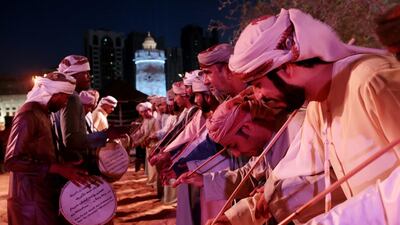Ever since I moved back to the UAE, I often get asked where I’m from. It seems to some people, that I don’t fit into the pre-existing notion of what an Emirati should look like, sound like or act like. Although, growing up I often got told that I was ethnically ambiguous, I never felt like I had to legitimise, validate or explain myself when people blatantly doubt my response. “No, but really, where are you from? You must not be full Emirati.”
Most of my best friends have one parent who is not Emirati and it surprised and disappointed me to hear some of their stories about growing up here.
What upset me most was that many people dismiss the bullying that they received at school, from family or from society in general as a fact of life. Growing up overseas, I was encouraged to integrate out of respect to the country I was in.
As a result, many of these communities I lived in allowed me to share parts of my own background, which made me integrate and assimilate even more without compromising the Emirati values that my parents ingrained in me at home. Marginalising or discriminating against Emirati children for having a different type of family is absolutely counterproductive to creating a close-knit society. There does not exist a singular definition of an Emirati.
We need to eradicate the judgment that comes with this kind of thinking. I feel this behaviour in general is not only un-Emirati, but also un-Islamic. There is no room in Islam for racism or discrimination. Rituals such as Salah, for example, are live demonstrations of equality. There is no preference in lining up for Salah: no preference based on race, clan, wealth, or political status. We have to be more accepting and encouraging and celebrate our multiculturalism instead of fearing the mythical dilution of the “Emirati identity”.
With that said, I sincerely believe that the essence of identity, the core values, such as Islamic heritage, hospitality, generosity, respect, and the importance of family bonds are things that we can maintain and should focus on instead of issues such as “purity” of bloodlines. As part of the generation that grew up with JK Rowling’s Harry Potter, it lands too close to the idea of muggle-born versus purebloods. Anyone who has enjoyed the magical world knows that without Hermione, Harry and Ron would have never survived.
To me, being Emirati is not about how you speak or how you dress. It is not how perfect your Khaleeji accent is and it is definitely not the colour of your skin. Being Emirati to me is measured only in the love you have for this country. It is reflected in your desire to fight for this land or in your continuous striving to contribute positively to society.
Therefore, I believe if we want to preserve cultural and traditional values we need to share them openly and let people embrace them and make them their own. We should also keep in mind that societies and cultures are not fixed entities. They have transient natures and as such will probably shift and adapt as the times change. We need to have honest discussions about what the real fear is. Change might be scary but people do not fit into neatly constructed boxes and they shouldn’t have to.
We need to seriously consider giving equal opportunities to children of Emirati women who might have a foreign father. While steps have been taken, such as the 2011 presidential decree which grants children of Emirati women married to non-nationals the right to apply for citizenship after reaching the age of 18, this should be a given. Nobody should feel unwelcome by his or her motherland.
To me, preserving and spreading Emirati identity isn’t about making sure everyone conforms to a certain rigid idea. Rather, it was simply and perfectly embodied this week at the Qasr Al Hosn festival when my Egyptian friend explained to my Cambodian-American friend how to properly indicate that you are done with your Gahwa (Arabic coffee) by shaking your finyaal (cup).
Fatima Al Shamsi is a globetrotting Emirati foodie, film buff and football fanatic

